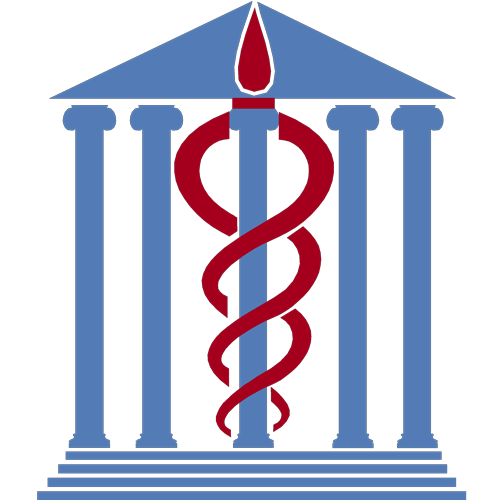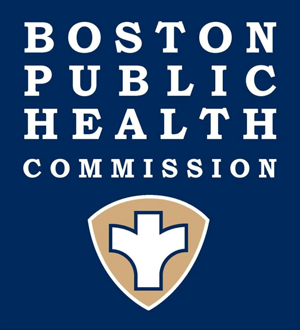Webinar Recordings
We post recordings of our webinars for general viewing approximately 30 days after the original delivery date, if appropriate. If you have an idea for a webinar you’d like us to pursue, let us know. Note: Webinars are listed alphabetically. Presenter affiliations and degrees listed for each webinar were accurate at the time of delivery.
The Veterans Health Administration (VHA) identified a need to evaluate the readiness of its 140 medical centers and their affiliated Community Based Outpatient Clinics (CBOC) with the goal of making the VHA the most resilient healthcare system in the world. This resulted in the Emergency Management Capability Assessment Program (EMCAP). This system evaluates emergency management efforts comprising up to 71 capabilities. The capabilities range across the full spectrum of activities that could be expected to support emergency management activities from the program level, to medical surge, to resiliency and continuity. Each capability is evaluated against a scoring tool that delineates each capability into observable elements. To ensure that all healthcare activities that could be affected by emergency management are assessed, the medical centers’ CBOCs, Home Based Primary Care programs, specialty outpatient services, etc., are included in the evaluation process. In this webinar, the initiation, development and evolution of the EMCAP program and corresponding institutional learning will be reviewed including how to use and adapt EMCAP assessment tool for your own organization. The EMCAP approach and tool, initially developed by Booze Allen Hamilton and then modified by the VHA to more specifically target their needs, could be used by any healthcare system to evaluate its own readiness and resiliency, enabling Emergency Managers to objectively articulate the status of their emergency preparedness program and clearly define preparedness gaps. Original Air Date: May 30, 2013 Runtime: 51 minutes Presenter: The Globally Harmonized System of Classification and Labeling of Chemicals: Meeting the New Training Requirements Original Air Date: November 13, 2013 Runtime: 42 minutes Presenters: Healthcare Safety Officer in Incident Response Original Air Date: February 6, 2014 Runtime: 58 minutes Presenters: Lt. Brian Pomodoro, DelValle Institute for Emergency Preparedness HIPAA In Emergencies: The Federal Perspective Original Air Date: January 15, 2014 Runtime: 53 minutes Presenters: Susan L. Rhodes, JD, How to Start a Respiratory Protection Program Original Air Date: December 14, 2016 Runtime: 1 hour 30 minutes Presenters: Gina Hale Managing Responses to Emerging Infectious Diseases: Past, Present, Future Webinar #1 Core Concepts What are the common themes that occur repeatedly with EID response? Although EID’s come with a number of unknowns, what evidence-based practices can we turn to that we are certain are effective? This webinar will introduce these challenges and review foundational concepts that will be expanded upon for the remainder of the training series. Original Air Date: August 9, 2016 Runtime: 1 hour 19 minutes Presenters: Massachusetts Department of Public Health M. Anita Barry, MD, MPH Mea E. Allen Managing Responses to Emerging Infectious Diseases: Past, Present, Future Webinar #2 Learning From the Past This webinar will examine best practices and weaknesses uncovered from EID response efforts in recent decades, such as the SARS outbreak in 2003, the 2009 H1N1 pandemic, and Ebola, among others. Participants will learn how EID response efforts from our recent past can be applied to better prepare us to respond to future EID epidemics. Original Air Date: August 24, 2016 Runtime: 1 hour 2 minutes Presenters: Jeffrey K. Griffiths, MD, AB, MPH&TM Mea E. Allen, MS Ashley Miller, MPH Managing Responses to Emerging Infectious Diseases: Past, Present, Future Webinar #3 Examining the Present Original Air Date: September 7, 2016 Runtime: 1 hour 16 minutes Presenters: Dallas County Health and Human Services Marshal Isaacs, MD, FACEP Norman Seals Dr. Sophia Dyer, MD, FACEP Mea E. Allen, MS Marathon Use of the Emergency Tracking System (ETS) Original Air Date: April 5, 2023 Runtime: 51 minutes Presenters: Mitigating Violence in Healthcare Facilities Original Air Date: June 7, 2016 Runtime: 1 hour 9 minutes Presenters: Monica Wynne This webinar introduces foundational knowledge to prepare personnel in healthcare settings for potential disaster situations that may be encountered in the course of their daily duties. As an integral piece of the Nation’s critical infrastructure, healthcare facilities, regardless of specialty, must continue to operate even during periods of great duress, such as pandemics, extreme weather or local incidents involving a significant release of hazardous materials. This three-and-a-half hour webinar will provide individuals working in healthcare settings with a foundation in all hazards basics. Through this interactive webinar format, participants will learn about recognizing a potential disaster incident and its corresponding threats. They will also learn to use the algorithm RAIN (Recognize, Avoid, Isolate, and Notify) to take initial defensive response actions against natural disasters, terrorism, and chemical, biological, explosive, and radiological agents. With its focus on healthcare personnel, the course will conclude by presenting material on the topics of victim management, personal preparedness and personal protective equipment. Original Air Date: November 2, 2016 Runtime: 2 hours 40 minutes Presenters: Mea Allen, M.Ed. Original Air Date: March 28, 2023 Runtime: 59 minutes Presenters: Mary Devine Stacey Kokaram Office of Public Health Preparedness Planning for Real: Emergency Planning Focused on the Needs of People Original Air Date: March 28, 2013 Runtime: 1 hour 4 minutes Presenters: Ready or Not? Evacuation and Sheltering Following Superstorm Sandy Original Air Date: May 21, 2013 Runtime: 1 hour 4 minutes Presenters: Stephen M. Lawlor Medical Intelligence Center (MIC) Operations Training – Awareness Webinar The MIC is operated by BPHC’s Office of Public Health Preparedness (OPHP), and supports three mission areas: to provide situational awareness and information sharing, to coordinate resource needs for City of Boston public health and healthcare partners, and to coordinate human service needs for City of Boston partners and residents. This training will review core concepts to prepare participants for interacting with the MIC during an incident response and recovery. Participants will gain an understanding of when the MIC may be activated and its role in public health and healthcare response and recovery. Runtime: 1 hour 2 minutes Presenters: Stacey Kokaram, MPH Use of the City of Boston WebEOC for ESF #8 Runtime: 38 minutes Presenters: Mea Allen What Your PIO Wants You To Know This one-hour webinar will prepare public health and healthcare officials to react appropriately should they be approached by the media, city or public health officials, or loved ones of patients. Participants will learn how to respond appropriately to requests, without releasing critical information, and how to frame responses in a way that reflects well on their respective organizations. Participants will also learn how to forward information requests to the most appropriate people in their organizations designated to provide critical information to the public. Runtime: 1 hour 8 minutes Presenters: Ché Knight Unmet Needs: Overburdened Healthcare System Original Air Date: May 24, 2022 Runtime: 1 hour 30 minutes Presenters: Patricia McMullin, Executive Director Leigh Simons Youmans, Senior Director Adam Delmolino, Director Disaster Recovery Planning: Awareness This course provides an overview of the recovery planning process, in both a pre-disaster and post-disaster context. Participants will review current guidance and best practices in recovery planning, along with a summary of key planning activities for public health, healthcare, and social service organizations. By the end of this session, learners will be able to: Original Air Date: June 8, 2022 Runtime: 57 minutes Presenter: Unmet Needs: Protecting Our Workforce Original Air Date: June 14, 2022 Runtime: 1 hour 28 minutes Presenters: Courtney Grey, Director of Disaster Behavioral Health Sam Podbelski, Interim Principal Jay Trivedi, Chief Executive OfficerWebinars by Date
2023
2022
2018
2016
2015
2014
2013
Assessing Readiness: Emergency Management Capability Assessment for Healthcare
Bill Vieth,
Veteran's Health Administration Office of Emergency Management
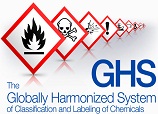 By December 1, 2013, over 43 million workers across the country will need to be trained on the Globally Harmonized System of Classification and Labeling of Chemicals (GHS). The GHS, which is being implemented worldwide, provides standardized label elements assigned by hazard class and category as well as a harmonized format of safety data sheets (SDS). To improve the safety and health of workers, the Occupational Safety and Health Administration (OSHA) has modified the Hazard Communication Standard (HCS) to bring the United States into alignment with this new system.
By December 1, 2013, over 43 million workers across the country will need to be trained on the Globally Harmonized System of Classification and Labeling of Chemicals (GHS). The GHS, which is being implemented worldwide, provides standardized label elements assigned by hazard class and category as well as a harmonized format of safety data sheets (SDS). To improve the safety and health of workers, the Occupational Safety and Health Administration (OSHA) has modified the Hazard Communication Standard (HCS) to bring the United States into alignment with this new system.
This awareness level webinar provides an overview of the GHS implementation in the United States, and summarizes the OSHA training requirements for the December 1st, 2013 compliance deadline.
Matthew Matosic and Lt. Brian Pomodoro,
Office of Public Health Preparedness
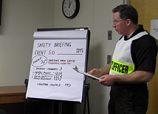 During an incident response, deployment of Safety Officer positions is critical to ensuring staff and patient safety. This one-hour webinar reviews the role, responsibilities, and authority of the Safety Officers within the Incident Command System specific to the healthcare setting, including hospitals, community health centers, and long term care facilities.
During an incident response, deployment of Safety Officer positions is critical to ensuring staff and patient safety. This one-hour webinar reviews the role, responsibilities, and authority of the Safety Officers within the Incident Command System specific to the healthcare setting, including hospitals, community health centers, and long term care facilities.
Jeanette McGillicuddy, Brockton Signature Hospital
 During this webinar, the US Department of Health and Human Services’ Office of the Assistant Secretary for Preparedness and Response (ASPR) and Office of Civil Rights (OCR) will discuss the role of HIPAA through the response and recovery phases of an emergency. The information provided in this webinar will assist organizations in the decision-making process when presented with a request for patient information. In addition, this webinar will include guidance on sharing patient information with appropriate entities to support recovery efforts following an emergency. The content will incorporate lessons learned and best practices from recent emergencies throughout the country.
During this webinar, the US Department of Health and Human Services’ Office of the Assistant Secretary for Preparedness and Response (ASPR) and Office of Civil Rights (OCR) will discuss the role of HIPAA through the response and recovery phases of an emergency. The information provided in this webinar will assist organizations in the decision-making process when presented with a request for patient information. In addition, this webinar will include guidance on sharing patient information with appropriate entities to support recovery efforts following an emergency. The content will incorporate lessons learned and best practices from recent emergencies throughout the country.
Kevin J. Horahan, JD, MPH, NR-P,
U.S. Department of Health and Human Services Assistant Secretary for Preparedness and Response Office of Policy and Planning, Division of Health System Policy
U.S. Department of Health and Human Services Office of Civil Rights
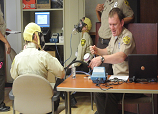 This webinar will present the elements of a respiratory protection program (RPP) and how to access resources to assist in developing and maintaining the program. Participants will receive basic knowledge in the selection of respiratory protection equipment, how to perform respiratory fit testing, and how to write and administer the program.
This webinar will present the elements of a respiratory protection program (RPP) and how to access resources to assist in developing and maintaining the program. Participants will receive basic knowledge in the selection of respiratory protection equipment, how to perform respiratory fit testing, and how to write and administer the program.
Lt. Brian Pomodoro, EMT-IC
Office of Public Health Preparedness
Boston Emergency Medical Services
Environmental Specialist
Tufts Medical Center
Go to webinar >>
 When a new disease presents itself, public health and healthcare workers must respond while facing challenges beyond what is involved in traditional infectious disease management. The unique challenges of emerging infectious diseases include an increased need for trust and communication with the public, personal protective measures, and collaboration with colleagues across agencies and disciplines. New diseases often cause an amount of fear and miscommunication, due to the unknown aspects of the disease, and changing guidelines as we learn more about it. Each time we see a new disease, or the reemergence of an old one, it can feel as if we are learning anew. Yet, there are sound practices that we have learned over time relating to both protecting responder health and safety and managing the system-wide response.
When a new disease presents itself, public health and healthcare workers must respond while facing challenges beyond what is involved in traditional infectious disease management. The unique challenges of emerging infectious diseases include an increased need for trust and communication with the public, personal protective measures, and collaboration with colleagues across agencies and disciplines. New diseases often cause an amount of fear and miscommunication, due to the unknown aspects of the disease, and changing guidelines as we learn more about it. Each time we see a new disease, or the reemergence of an old one, it can feel as if we are learning anew. Yet, there are sound practices that we have learned over time relating to both protecting responder health and safety and managing the system-wide response.
Alfred DeMaria, Jr., M.D.
Boston Public Health Commission
Boston Public Health Commission
 As with any type of hazard, it is imperative that we draw upon experience from past outbreaks to build collective wisdom and foster continual improvement. With emerging infectious diseases, this is particularly challenging given that such outbreaks often occur years apart and in distant communities all over the world.
As with any type of hazard, it is imperative that we draw upon experience from past outbreaks to build collective wisdom and foster continual improvement. With emerging infectious diseases, this is particularly challenging given that such outbreaks often occur years apart and in distant communities all over the world.
Tufts University
Boston Public Health Commission
Boston Public Health Commission
 In September 2014, the first Ebola patient in the US was diagnosed in Dallas. From the day of that diagnosis, and for weeks afterward, public health, healthcare, and EMS agencies in Dallas County were working in a context very different from the day-to-day routine. Join us for a look behind the scenes of the multi-agency response, including how lessons observed in 2014 are informing planning and response actions today.
In September 2014, the first Ebola patient in the US was diagnosed in Dallas. From the day of that diagnosis, and for weeks afterward, public health, healthcare, and EMS agencies in Dallas County were working in a context very different from the day-to-day routine. Join us for a look behind the scenes of the multi-agency response, including how lessons observed in 2014 are informing planning and response actions today.
Wendy Chung, MD
Dallas Fire-Rescue Department
Dallas Fire-Rescue Department
Boston EMS, BPD, BFD
Boston Public Health Commission
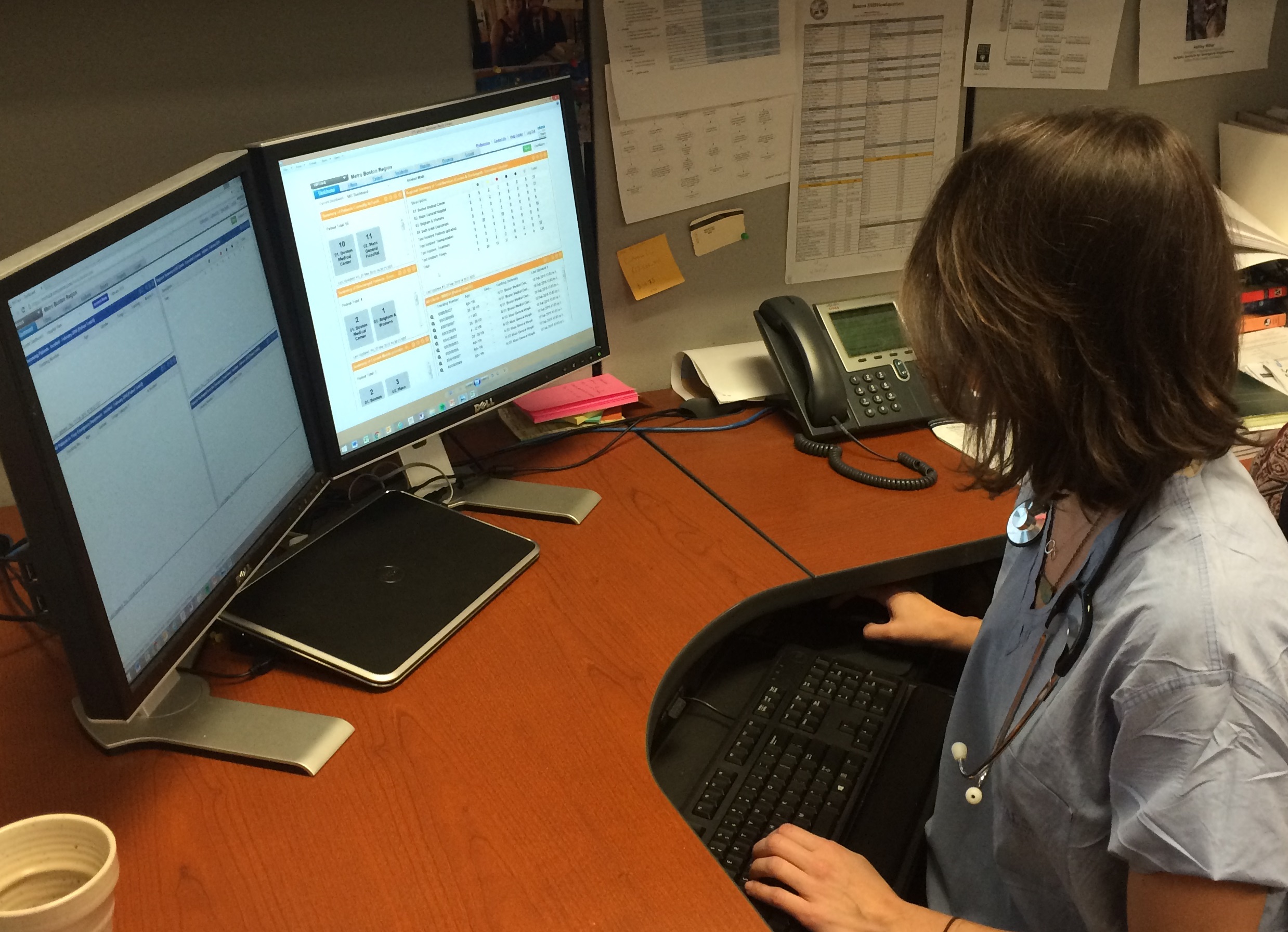 This one-hour webinar will deliver an overview of the Emergency Tracking System (ETS) to public health and healthcare staff to prepare staff to conduct and monitor patient tracking during the Boston Marathon. Participants will learn how to access and navigate the ETS; how to search, edit and create new patient records; and how to update patient data for their own agency. Most of this content can be generalized to other planned or unplanned events. The webinar will be lecture-driven with live demonstration and knowledge checks. A quick reference guide will be given to students to direct their use of ETS during the Boston Marathon and other incidents following the training. Following the training, participants will be directed to the ETS test incident for the opportunity to practice their understanding of course concepts.
This one-hour webinar will deliver an overview of the Emergency Tracking System (ETS) to public health and healthcare staff to prepare staff to conduct and monitor patient tracking during the Boston Marathon. Participants will learn how to access and navigate the ETS; how to search, edit and create new patient records; and how to update patient data for their own agency. Most of this content can be generalized to other planned or unplanned events. The webinar will be lecture-driven with live demonstration and knowledge checks. A quick reference guide will be given to students to direct their use of ETS during the Boston Marathon and other incidents following the training. Following the training, participants will be directed to the ETS test incident for the opportunity to practice their understanding of course concepts.
Mea Allen
Office of Public Health Preparedness
 Violence is an all too common reality in the healthcare setting. This one-hour webinar delivered by specialists in healthcare facility security and crisis prevention will address techniques that may be used to recognize and short-circuit a violent situation before it happens. Participants will learn methods to identify possibly combative patients and guests in the healthcare setting, techniques to use that may prevent a violent situation from escalating, and procedures to use on a combative person. The webinar will conclude with a review of potential effects of violence on staff.
Violence is an all too common reality in the healthcare setting. This one-hour webinar delivered by specialists in healthcare facility security and crisis prevention will address techniques that may be used to recognize and short-circuit a violent situation before it happens. Participants will learn methods to identify possibly combative patients and guests in the healthcare setting, techniques to use that may prevent a violent situation from escalating, and procedures to use on a combative person. The webinar will conclude with a review of potential effects of violence on staff.
Lt. Brian Pomodoro, EMT-IC
Office of Public Health Preparedness
Boston Emergency Medical Services
Baystate Health
Go to webinar page >>
Module I: All Hazards Awareness for Healthcare Personnel
Lt. Brian Pomodoro, EMT-IC
Office of Public Health Preparedness
Office of Public Health Preparedness
Patient Tracking: Behind the Scenes of Family Reunification and Patient Support
 From low technology paper and pencil systems to more advanced electronic systems, patient tracking plays a critical role in reunifying families and providing resources for long term support. In this webinar the Office of Public Health Preparedness (OPHP) will outline patient tracking methods used in Metropolitan Boston, and describe the larger structure in which patient tracking is integrated, including the work of the Stephen M. Lawlor Medical Intelligence Center. Examples from the 2013 Boston Bombings will be used to illustrate the importance of patient tracking in providing patient care. In addition, the webinar will detail the use, value, and security of sharing patient location information with approved parties.
From low technology paper and pencil systems to more advanced electronic systems, patient tracking plays a critical role in reunifying families and providing resources for long term support. In this webinar the Office of Public Health Preparedness (OPHP) will outline patient tracking methods used in Metropolitan Boston, and describe the larger structure in which patient tracking is integrated, including the work of the Stephen M. Lawlor Medical Intelligence Center. Examples from the 2013 Boston Bombings will be used to illustrate the importance of patient tracking in providing patient care. In addition, the webinar will detail the use, value, and security of sharing patient location information with approved parties.
Mea Allen
Office of Public Health Preparedness
Boston Children's Hospital Senior Director of Emergency Management
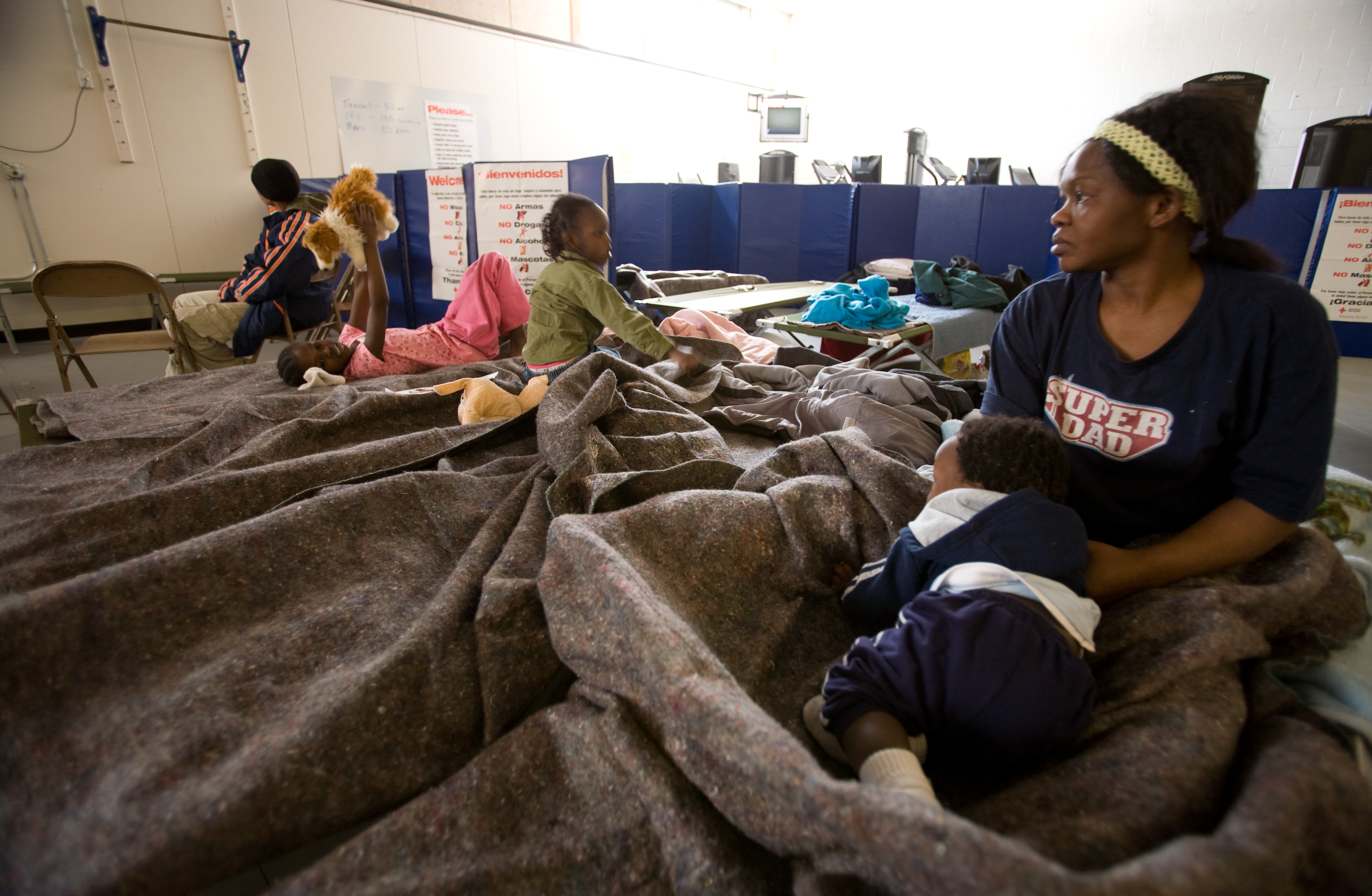 In this webinar, participants will learn approaches for emergency planning to meet the needs of people who are most impacted by disasters. Hurricane Sandy represents the most recent example of the continued gaps in planning for people who are most vulnerable, underserved, and underrepresented (referred to by FEMA as people with access and functional needs). This webinar will review categories of people at risk, how to approach development of a community profile, and application of community profiles to emergency planning to reflects those individuals most at risk.
In this webinar, participants will learn approaches for emergency planning to meet the needs of people who are most impacted by disasters. Hurricane Sandy represents the most recent example of the continued gaps in planning for people who are most vulnerable, underserved, and underrepresented (referred to by FEMA as people with access and functional needs). This webinar will review categories of people at risk, how to approach development of a community profile, and application of community profiles to emergency planning to reflects those individuals most at risk.
S. Atyia Martin, MPS, EMT-B,
Office of Public Health Preparedness
Rebecca Phillips, MSSW,
DelValle Institute for Emergency Preparedness
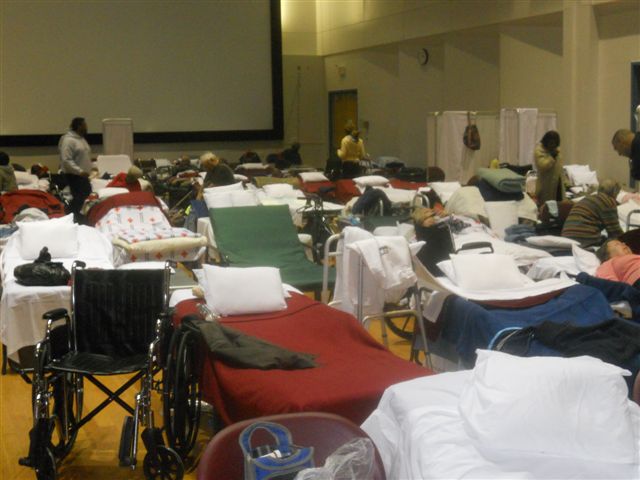 On October 27, 2012, the Nassau County Executive issued an order for the mandatory evacuation of the coastal regions of the County in response to the anticipated landfall of Superstorm Sandy. This executive order resulted in the transfer of individuals from one acute care hospital, five skilled nursing facilities, dozens of adult homes and a general population of over 200,000 community residents. The Nassau County Health Department served as the lead County agency responsible for healthcare facility evacuation and special needs sheltering. This webinar will identify lessons learned and best practices in planning, management and operation of evacuation and sheltering and the integration of the Health Department within the local, State and Federal emergency response systems.
On October 27, 2012, the Nassau County Executive issued an order for the mandatory evacuation of the coastal regions of the County in response to the anticipated landfall of Superstorm Sandy. This executive order resulted in the transfer of individuals from one acute care hospital, five skilled nursing facilities, dozens of adult homes and a general population of over 200,000 community residents. The Nassau County Health Department served as the lead County agency responsible for healthcare facility evacuation and special needs sheltering. This webinar will identify lessons learned and best practices in planning, management and operation of evacuation and sheltering and the integration of the Health Department within the local, State and Federal emergency response systems.
Ann DeSimone, RN, BS, EMT-B and Shelly Schechter, APRN, BC,
Nassau County Department of Health
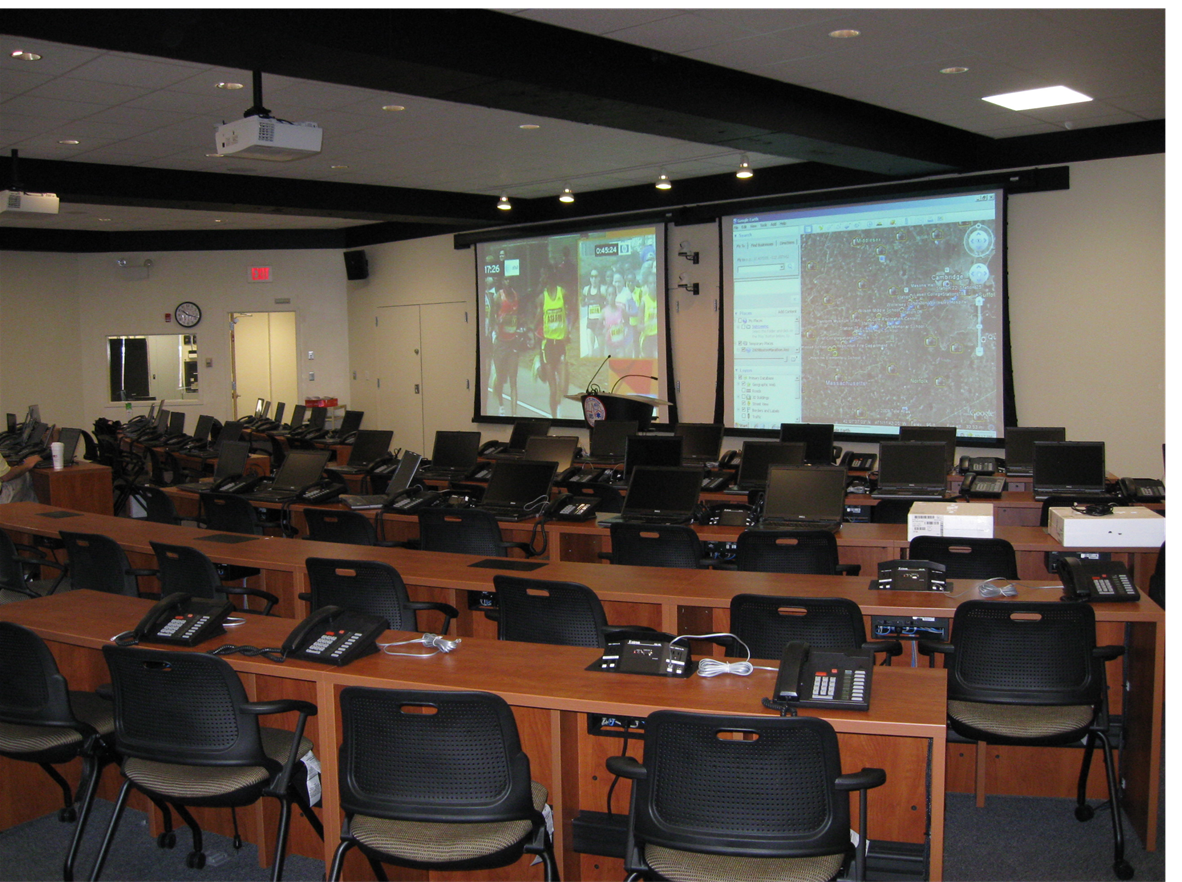 The Metro Boston Homeland Security Region (MBHSR) of Boston, Brookline, Cambridge, Chelsea, Everett, Quincy, Revere, Somerville, and Winthrop has experienced a wide range of emergencies over the last several years, from snow storms to building fires to acts of terrorism. Behind the scenes, many agencies – such as public health, healthcare, emergency medical services, emergency management, and public safety – work together to support emergency response and recovery operations. As part of this coordinated effort, the Stephen M. Lawlor Medical Intelligence Center (MIC) is activated in the City of Boston to serve as the department operations center for the Boston Public Health Commission (BPHC), as well as the multi-agency coordinating center for public health and healthcare partners supporting the response to and recovery from emergencies.
The Metro Boston Homeland Security Region (MBHSR) of Boston, Brookline, Cambridge, Chelsea, Everett, Quincy, Revere, Somerville, and Winthrop has experienced a wide range of emergencies over the last several years, from snow storms to building fires to acts of terrorism. Behind the scenes, many agencies – such as public health, healthcare, emergency medical services, emergency management, and public safety – work together to support emergency response and recovery operations. As part of this coordinated effort, the Stephen M. Lawlor Medical Intelligence Center (MIC) is activated in the City of Boston to serve as the department operations center for the Boston Public Health Commission (BPHC), as well as the multi-agency coordinating center for public health and healthcare partners supporting the response to and recovery from emergencies.
Original Air Date: February 27, 2018
Benjamin McNeil, MS
Office of Public Health Preparedness
Office of Public Health Preparedness
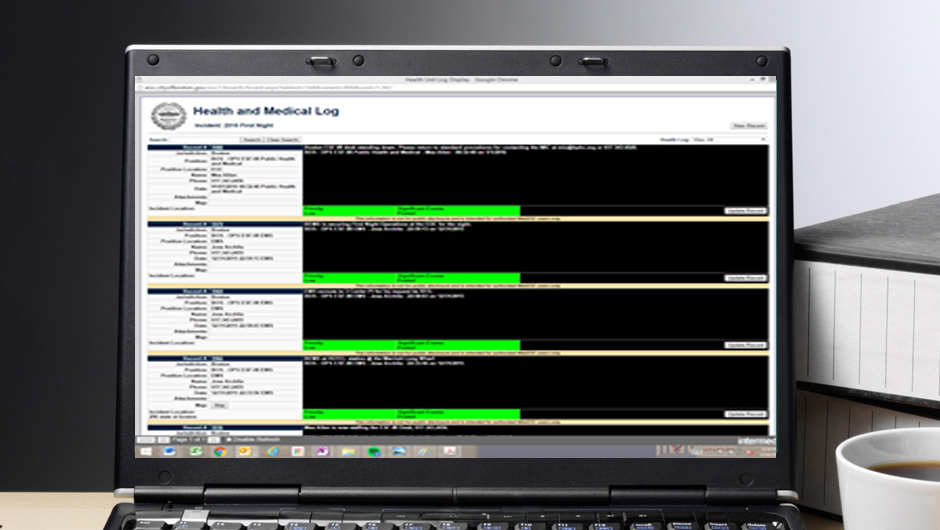 This one hour webinar provides an overview of the City of Boston WebEOC system. Participants will learn how to access and navigate WebEOC boards relevant to ESF #8, and also craft and post clear, concise messages that comply with standards for protected and sensitive information. In addition, updates made to WebEOC in the last year will be reviewed. The course will be lecture driven with demo injects and knowledge checks. A quick reference guide will be given to students to direct their use of WebEOC during incidents following the training. A drill of the WebEOC system will follow this training to assess participants’ knowledge of the course concepts.
This one hour webinar provides an overview of the City of Boston WebEOC system. Participants will learn how to access and navigate WebEOC boards relevant to ESF #8, and also craft and post clear, concise messages that comply with standards for protected and sensitive information. In addition, updates made to WebEOC in the last year will be reviewed. The course will be lecture driven with demo injects and knowledge checks. A quick reference guide will be given to students to direct their use of WebEOC during incidents following the training. A drill of the WebEOC system will follow this training to assess participants’ knowledge of the course concepts.
Original Air Date: April 11, 2023
Katherine Tejada
Office of Public Health Preparedness
Office of Public Health Preparedness
 What would you do if a reporter or media outlet called you at work, asking you to comment on your response to the latest Zika case in your town? How would you respond to a high ranking official demanding to know the condition of a child just brought to your hospital? Healthcare and public health employees are often seen as the first point of contact by the media, patients, and the general public looking for information when an incident emerges.
What would you do if a reporter or media outlet called you at work, asking you to comment on your response to the latest Zika case in your town? How would you respond to a high ranking official demanding to know the condition of a child just brought to your hospital? Healthcare and public health employees are often seen as the first point of contact by the media, patients, and the general public looking for information when an incident emerges.
Original Air Date: April 26, 2016
Ashley Miller
Office of Public Health Preparedness
Boston Public Health Commission
Go to webinar page >>
 As with any disaster, the COVID-19 pandemic is leaving in its wake a broad range of impacts on the health of our community, and on our health and social services infrastructure. To take on the incredible challenge of long-term recovery, we must understand the scope of the unmet needs, generate cross discipline solutions, and keep our focus on improving organizational and community resilience. In this first session of our “Series on Unmet Needs”, we will look at the impact of COVID-19 on our overall healthcare system.
As with any disaster, the COVID-19 pandemic is leaving in its wake a broad range of impacts on the health of our community, and on our health and social services infrastructure. To take on the incredible challenge of long-term recovery, we must understand the scope of the unmet needs, generate cross discipline solutions, and keep our focus on improving organizational and community resilience. In this first session of our “Series on Unmet Needs”, we will look at the impact of COVID-19 on our overall healthcare system.
Theresa Smith
Resident Services, Housing Operations
Conference of Boston Teaching Hospitals
Healthcare Policy, Massachusetts Health & Hospital Association
Virtual Care & Clinical Affairs
Massachusetts Health & Hospital Association
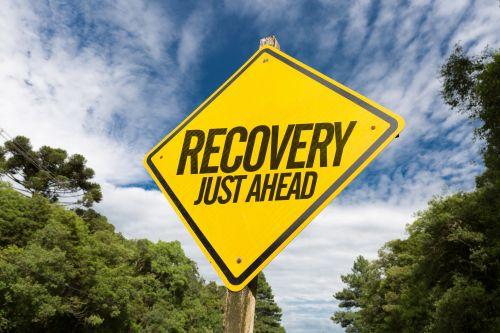 When disaster hits, the urgency of the initial response often prevents us from planning for the longer recovery phase. This the challenge in recovery planning. How can we re-establish vital services to the community while also improving organizational and community resilience? Planning for recovery BEFORE disaster strikes helps to establish partnerships, roles, and key priorities to address in a post-disaster environment.
When disaster hits, the urgency of the initial response often prevents us from planning for the longer recovery phase. This the challenge in recovery planning. How can we re-establish vital services to the community while also improving organizational and community resilience? Planning for recovery BEFORE disaster strikes helps to establish partnerships, roles, and key priorities to address in a post-disaster environment.
Mea Allen, M.Ed.
Office of Public Health Preparedness
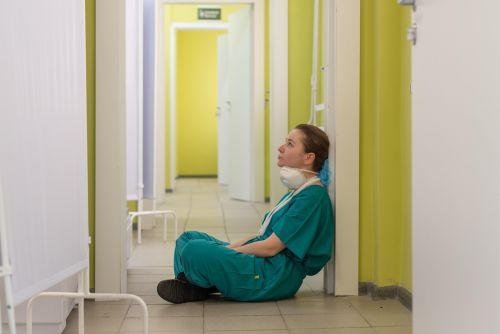 As with any disaster, the COVID-19 pandemic is leaving in its wake a broad range of impacts on the health of our community, and on our health and social services infrastructure. To take on the incredible challenge of long-term recovery, we must understand the scope of the unmet needs, generate cross discipline solutions, and keep our focus on improving organizational and community resilience. In this first session of our “Series on Unmet Needs”, we will look at the impact of COVID-19 on our overall healthcare system.
As with any disaster, the COVID-19 pandemic is leaving in its wake a broad range of impacts on the health of our community, and on our health and social services infrastructure. To take on the incredible challenge of long-term recovery, we must understand the scope of the unmet needs, generate cross discipline solutions, and keep our focus on improving organizational and community resilience. In this first session of our “Series on Unmet Needs”, we will look at the impact of COVID-19 on our overall healthcare system.
Stacey Kokaram, Director
Office of Public Health Preparedness
Office of Public Health Preparedness
Henderson K-12 School
Upham's Corner Health Center
